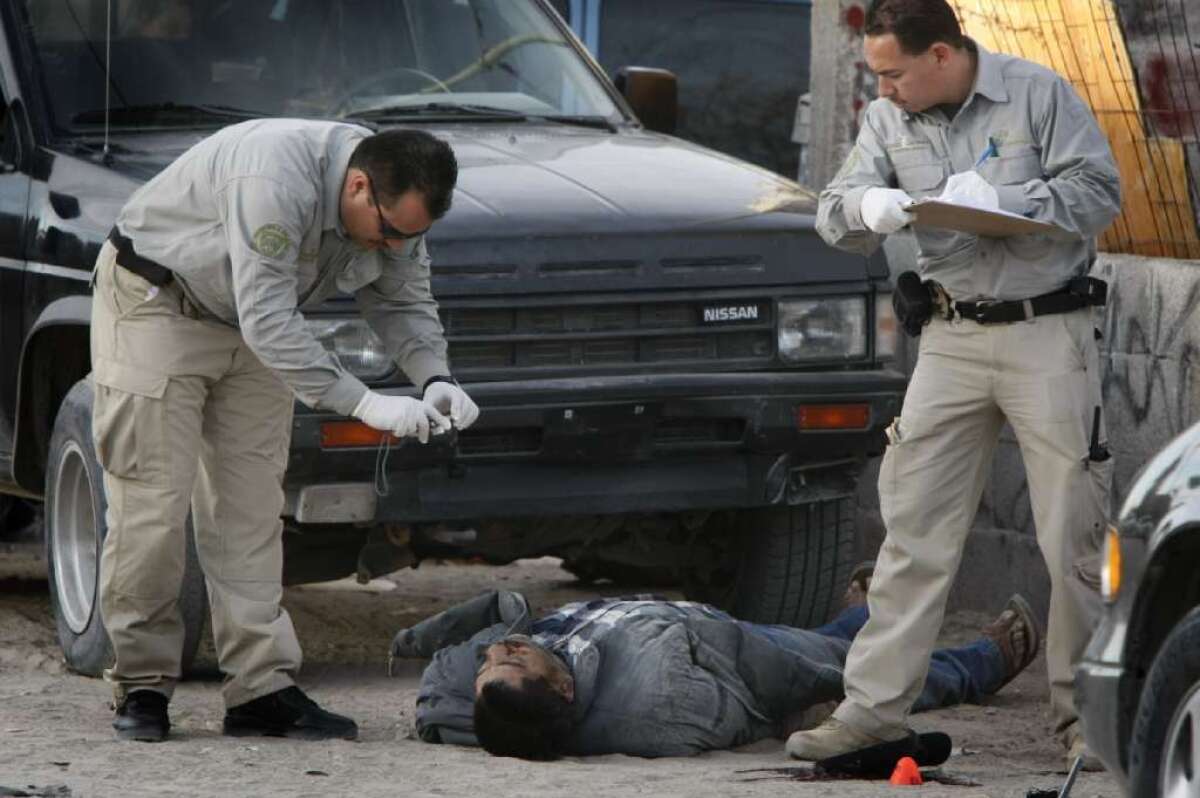Dicey neighborhoods can induce paranoia in visitors -- quickly

Among social science researchers, there is much chin-scratching over the lack of trust -- in government, in social institutions, in other people -- that prompts minority populations do things that are not necessarily in their best interest: to disobey orders to evacuate before a storm, to steer clear of doctors and hospitals, to refuse vaccinations or other public health measures. But a new study suggests there’s no mystery in this kind of behavior, and finds that, with a quick immersion in a neighborhood riven by crime and dysfunction, even the most civic-minded social science researcher would probably feel the same level of fear and mistrust.
The latest study, published Tuesday in the open-access journal PeerJ, suggests that attitudes of trust in other people and beliefs about their willingness to do one harm are not unalterably forged in childhood or a fixed facet of personality: They vary daily in response to the steady stream of social cues to which we are exposed in and around our home turf.
When those cues are unvaryingly menacing, mistrust may seem an entrenched feature of a person. But drop that hardened, suspicious cynic into a clean, safe neighborhood, and the latest research would suggest she would soon be inclined to give humanity a chance.
British researchers explored the broad phenomenon of trust - -and its nemesis, paranoia -- in the city of Newcastle upon Tyne in northeast England. Two Newcastle neighborhoods, both the subject of sociological field work for many years, offered a study in contrasts, and so did their inhabitants’ attitudes of trust and their propensity toward paranoia.
While similar in size, ethnic composition, population density, architectural layout and distance from the city’s center, Neighborhood A and B fall on opposite ends of the socioeconomic scale. Neighborhood A is a tidy enclave of homeowner residents employed in a range of professions. Neighborhood B has not recovered from the loss of industrial jobs that started in the 1970s, and its residents are classified by the British government as among the nation’s most deprived citizens. Crime in Neighborhood B is twice as high as that in Neighborhood A, and violent crime runs six times as high.
Years of research have found that residents of the two neighborhoods employ markedly different strategies in games that gauge cooperation and trust, and surveys taken as part of the current research found significant differences in social trust among residents of the two neighborhoods.
Researchers dropped 52 student volunteers from the University of Newcastle into one of the two neighborhoods with instructions to deliver questionnaires to a list of residences. It was a 45-minute errand that each set off to do on his or her own before returning to a specified pickup point.
Upon returning to the waiting vehicle, the unwitting research subjects were asked to fill out an inventory measuring their degree of social trust and paranoia, and as a diversion, to complete a measure of mood and write down some observations about the neighborhood they had visited.
Irrespective of their own socioeconomic origins and despite only small differences in their reported moods, the students’ levels of social trust and paranoia tracked closely with those of residents in the neighborhoods they had visited, researchers found. Those who delivered questionnaires in Neighborhood A endorsed more trusting and pro-social attitudes, and were less inclined to believe others would do them harm if given the opportunity; those who delivered questionnaires to Neighborhood B embraced suspicion, mistrust and paranoid thoughts about others’ intentions toward them.
In short, a person’s seemingly fundamental attitudes toward other people and social institutions can change, seemingly, on a dime.
“Cross-sectional studies that purport to show, for example, that a particular social group has low social trust, only really show that people currently in that environment report low social trust,” the authors of the current study write. “They do not in themselves justify any inference about what those participants would be like if they migrated elsewhere, their state changed, or their public environment was altered.”







